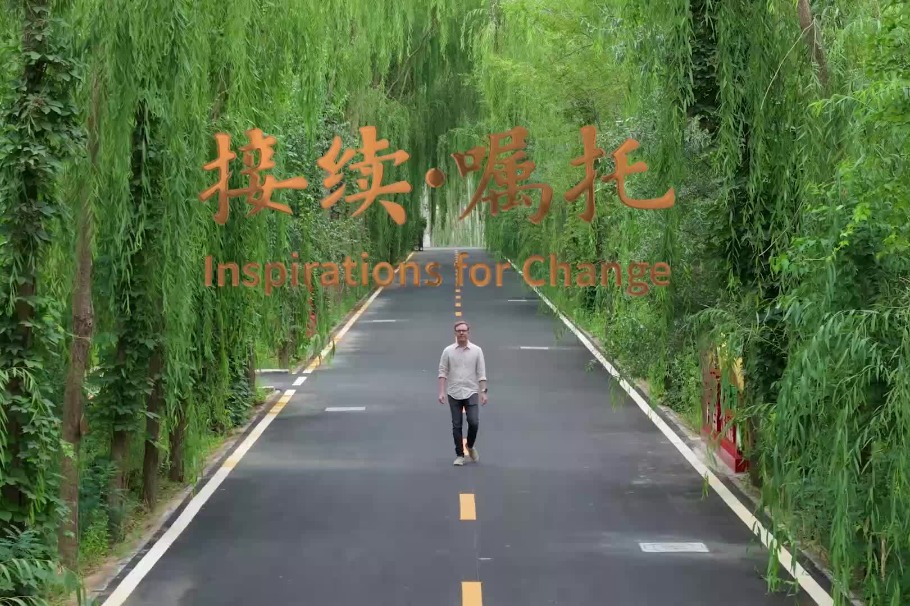Security tops agenda from Polish perspective


Ten years ago, Chinese President Xi Jinping came up with the idea of Belt and Road Initiative. From the very beginning it was a confirmation of China's new global role. As such, it was accepted with mixed feelings by the Western world — not in the United States alone but also in some European countries — but with wide expectations by most of the countries in the Global South.
The past decade's experience of the Belt and Road Initiative has taught us many lessons. Looking from the Central European, or the Polish, perspective, one can describe the current global situation thus: The world right now is different from what it was decades ago; it is more turbulent, more fragmented, with the international financial architecture in a state of flux, and with new institutional frameworks not only on the economic front (BRICS+, the Comprehensive and Progressive Agreement for Trans-Pacific Partnership, the Regional Comprehensive Economic Partnership) but also in the security sphere (the Shanghai Cooperation Organization, AUKUS and Quad).
The three-year-long COVID-19 pandemic and the damaging impacts of the Russia-Ukraine conflict, among others, have created a new situation. Instead of mutual engagement, we frequently witness major power politics on the world stage.
However, some major European countries, starting from Germany and France, fortunately, did not subscribe to — the recently popular — idea of decoupling, that is, great disruption between, mainly, China and the US. Instead, we have started to use the term defined by European Commission President Ursula von der Leyen in late March this year, "de-risking", that is, to avoid and properly manage the risks, without jumping into the abyss of open conflict.
Initially, the Belt and Road Initiative was an "express train of Chinese development", as described by President Xi. In the new era of tension, growing competition and uncertainty, this goal will be definitively more difficult to achieve than originally intended. Thus, everyone, in China and the outside world, paid greater attention to the third Belt and Road Forum for International Cooperation which concluded in Beijing on Wednesday.
What can be expected?
Looking from our rather narrow but crucial Polish perspective, due to our strategic location between Western and Eastern civilizations but with strong engagement in the Western alliance, including also our experience of cooperation, one can figure out the following important issues, when looking to the future of the Belt and Road Initiative:
Given the ongoing Russia-Ukraine conflict, it is not easy for Poland to play its traditional role of a bridge not only on the East-West axis but also the North-South axis (meaning Scandinavian countries on one side and the Balkans on the other). Only a peaceful solution to the ongoing conflict can help us to resume our traditional role of intermediary or central partner.
Poland is strongly connected to German and Western European economics, as confirmed by available data, thus the recent German policy toward China, adopted in July this year, with "de-risking", is a kind of benchmark for the authorities in Warsaw. It includes the central statement of this policy, namely that China and the global role of China have changed and thus our approach also has to be changed and diversified. It will be, according to this document, our "partner, competitor and systemic rival".
The experience of the past decade shows that the Belt and Road Initiative should be focused not only on big infrastructure projects, but also take into consideration constantly growing climate and ecological demands. At the same time, a win-win strategy, as initially proposed, should mean more engagement of the recipient side. It should rather be a local project with — stronger or weaker — Chinese support.
Yes, Poland is crucial for the overland routes for trains and road transportation, but also deeply engaged with the Western/NATO alliance, so crucial during the conflict on our borders. It complicates the case, at least until a peace treaty is signed, which, unfortunately, is not visible even on the horizon, as neither side of the conflict is ready to retreat.
The essence of the Belt and Road Initiative is connectivity, which — as we can see — recently is increasingly focused on chips, artificial intelligence, rare earths and outer space, and not only massive infrastructure projects, as it was a decade ago.
As for the Chinese leadership, it is prioritizing a global vision of a community with a shared future for humankind narrative. Only when no conflict is on our doors can we again expect business, and not a security agenda on the top.
But when? Nobody knows. Many questions remain to be answered.
The author is former ambassador of the Republic of Poland to Thailand, and the director of the European Center of the University of Warsaw. The views don't necessarily reflect those of China Daily.
If you have a specific expertise, or would like to share your thought about our stories, then send us your writings at opinion@chinadaily.com.cn, and comment@chinadaily.com.cn.
































